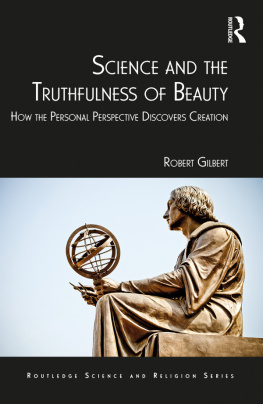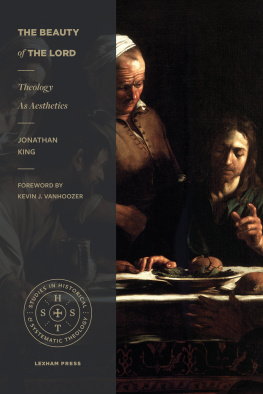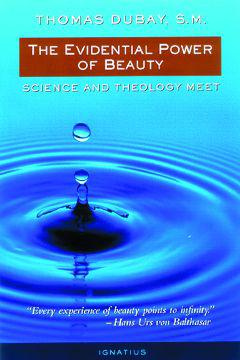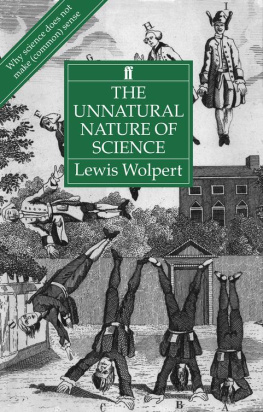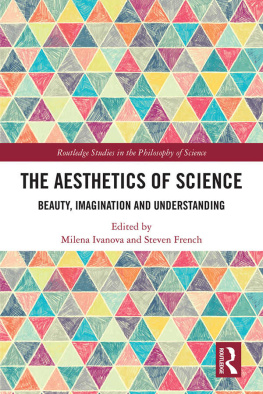p.iii

p.i
Science and the Truthfulness of Beauty
When scientists describe their results or insights as beautiful, are they using the term differently from when they use it of a landscape, music or another person?
Science and the Truthfulness of Beauty re-examines the way in which seeing beauty in the world plays the key role in scientific advances, and argues that the reliance on such a personal point of view is ultimately justified by belief that we are made in the image of God, as Christian and Jewish believers assert. It brings a fresh voice to the ongoing debate about faith and science, and suggests that scientists have as much explaining to do as believers when it comes to the ways they reach their conclusions.
Robert Gilbert has worked in Oxford since 1999, in 2002 becoming Fellow and Tutor in Biochemistry at Magdalen College. From 2004 to 2012 he held a Royal Society University Research Fellowship in the Division of Structural Biology, part of the Nuffield Department of Medicine where he is now Professor of Biophysics and Director of Graduate Studies alongside his Biochemistry Faculty and College teaching. From 2009 to 2011 Professor Gilbert trained for ordination as an Anglican priest before being made a deacon in 2011 and ordained priest in 2012. After completing his curacy in the parishes of Wolvercote and Wytham in North Oxford, he stayed on as an associate priest before taking up a similar role at Holy Trinity, Headington Quarry, in 2016. He is the author of more than eighty scientific articles, co-edited an international scientific monograph published in 2014 and is the Managing Editor of the European Biophysics Journal .
p.ii
Routledge Science and Religion Series
Science and religion have often been thought to be at loggerheads but much contemporary work in this flourishing interdisciplinary field suggests this is far from the case. The Science and Religion Series presents exciting new work to advance interdisciplinary study, research and debate across key themes in science and religion, exploring the philosophical relations between the physical and social sciences on the one hand and religious belief on the other. Contemporary issues in philosophy and theology are debated, as are prevailing cultural assumptions arising from the post-modernist distaste for many forms of reasoning. The series enables leading international authors from a range of different disciplinary perspectives to apply the insights of the various sciences, theology and philosophy and look at the relations between the different disciplines and the rational connections that can be made between them. These accessible, stimulating new contributions to key topics across science and religion will appeal particularly to individual academics and researchers, graduates, postgraduates and upper-undergraduate students.
https://www.routledge.com/religion/series/ASCIREL
Titles in the series include:
Christian Moral Theology in the Emerging Technoculture
From Posthuman Back to Human
Brent Waters
Being as Communion
A Metaphysics of Information
William A. Dembski
The Roots of Religion
Exploring the Cognitive Science of Religion
Edited by Roger Trigg and Justin L. Barrett
The Intelligent Design Debate and the Temptation of Scientism
Erkki Vesa Rope Kojonen
Science and the Truthfulness of Beauty
How the Personal Perspective Discovers Creation
Robert Gilbert
p.iii
Science and the Truthfulness
of Beauty
How the Personal Perspective Discovers
Creation
Robert Gilbert

p.iv
First published 2018
by Routledge
2 Park Square, Milton Park, Abingdon, Oxon OX14 4RN
and by Routledge
711 Third Avenue, New York, NY 10017
Routledge is an imprint of the Taylor & Francis Group, an informa business
2018 Robert Gilbert
The right of Robert Gilbert to be identified as author of this work has been asserted by him in accordance with sections 77 and 78 of the Copyright, Designs and Patents Act 1988.
All rights reserved. No part of this book may be reprinted or reproduced or utilised in any form or by any electronic, mechanical, or other means, now known or hereafter invented, including photocopying and recording, or in any information storage or retrieval system, without permission in writing from the publishers.
Trademark notice : Product or corporate names may be trademarks or registered trademarks, and are used only for identification and explanation without intent to infringe.
British Library Cataloguing-in-Publication Data
A catalogue record for this book is available from the British Library
Library of Congress Cataloging-in-Publication Data
A catalog record for this book has been requested
ISBN: 978-1-4724-7217-5 (hbk)
ISBN: 978-1-315-60777-1 (ebk)
Typeset in Bembo Std
by Swales & Willis Ltd, Exeter, UK
p.vii
This book is based on my own experience as a research scientist, as a tutor and lecturer with significant administrative and pastoral responsibilities over the last ten and more years, and as a lifelong member of the Church of England and now Anglican priest. It is grounded in my working life, practically engaged as a professional scientist in a university setting, and also in my experience of parish life in different contexts: as a child, in Leicester from 1995 to 1998, and, since 1999, in three parishes in Oxford. I hope it is an honest account of how I have come to understand things, based on a rich variety of experience for which I am very grateful.
The thinking that has led to this book began while I was at school, and particularly during my sixth-form years. I am immensely lucky to have attended the Kings School in Worcester, which has provided the most significant influence on my intellectual and professional development. The atmosphere of open and honest enquiry, in which we were taught by great personalities who were unafraid to express themselves in ways they found natural, has been of lasting and profound benefit. I wish in particular to acknowledge the influence of Bob Allum, Keith Bridges, Peter and Rosemary Diamond and Stephan le Marchand.
This book has also been influenced by some peak experiences that have turned my head and made me see things in new ways. Significant among them was a series of lectures on sacramental spirituality held in Durham while I was an undergraduate there and organised to celebrate the 900th anniversary of Durham Cathedral. I will never forget hearing George Steiner lecture on a comparison of the Gospel of John and Platos Symposium (who could? The topic is too striking to be forgotten); or John Tavener give a kind of lecture-recital with the help of the cathedral choir. Sacramental spirituality lies at the heart of what I am trying to say, and I continue to benefit from some of the things I learnt from this initiative of David Brown and Ann Loades, and from things they themselves have said and written.
p.viii
It will be clear that I am greatly indebted to a host of contemporary writers who have, for years, provided inspiration and opened my mind. It will also be clear who is the most significant of those writers. Alongside the encouragement I have received in this way, I have been greatly enabled by the kindness of people who have helped me to realise myself, among them Michael Piret, Andrew Davison and Peter Groves, who each invited me to give talks that happened to help me give shape to my thoughts, James Alison and Philip Kennedy, Helen de Cruz and Johan de Smedt, Paul Fiddes and Richard Parrish. The influence of friends made at Magdalen College in Oxford is obvious, especially Ralph Walker and Robin Dunbar, and most especially Angus Ritchie. This book is part of a conversation we have been having for many years now, and Angus has been very generous always in his particular encouragement. He also very kindly read the book prior to publication. I am, of course, grateful to all Magdalens staff and students for the ways in which I have been able to make better sense of life by being part of their context since 2002.
Next page
